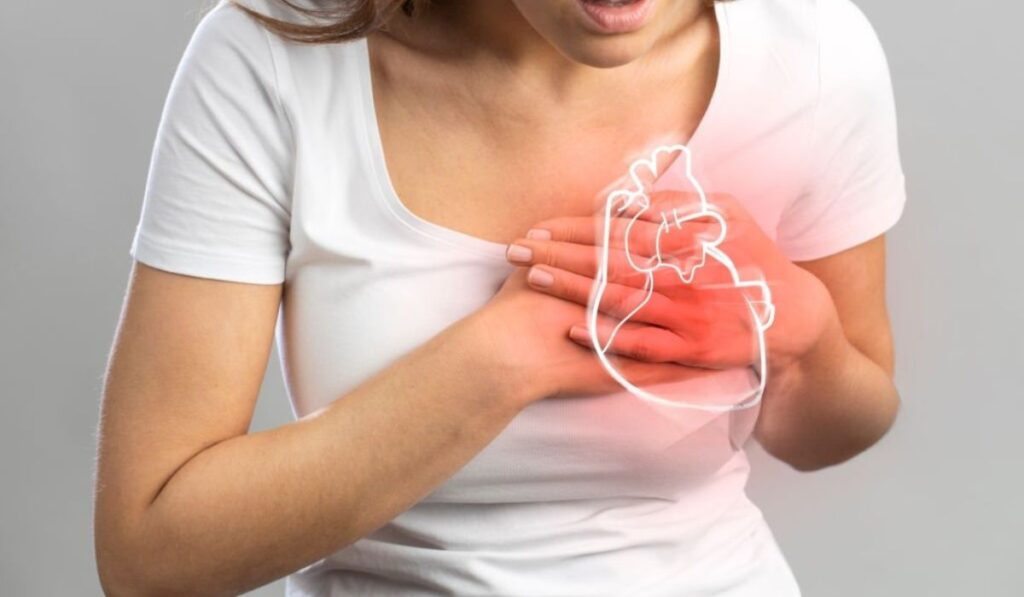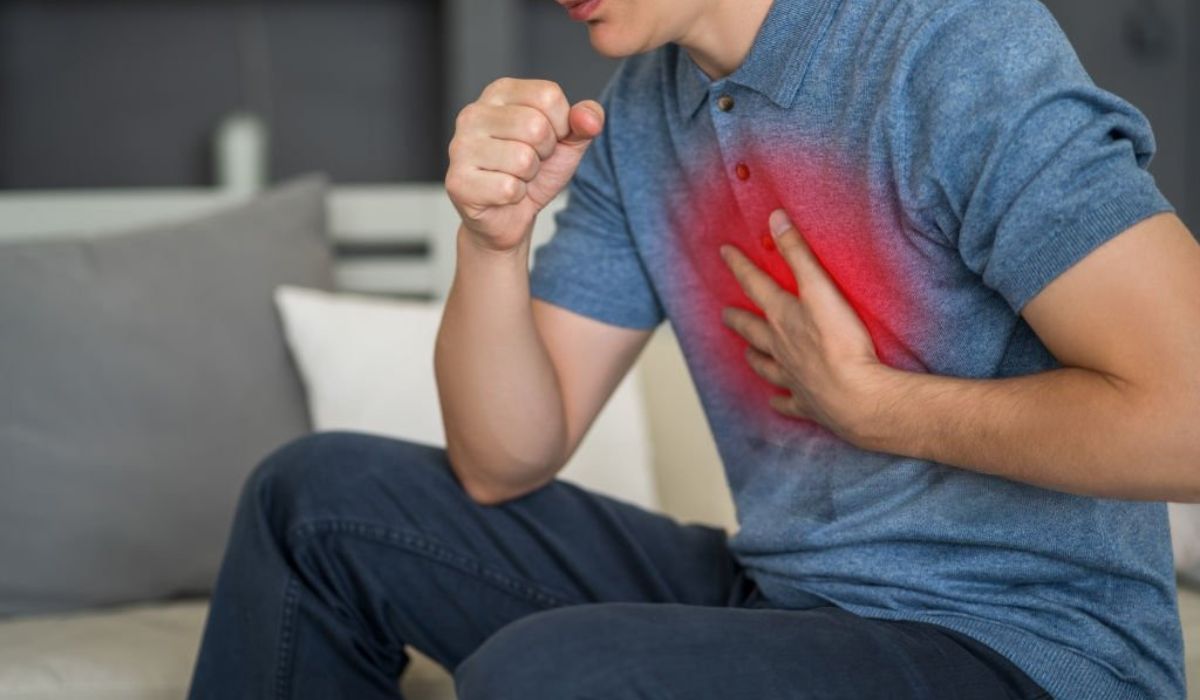Many people suffer from panic attacks and generalized anxiety. Now, what is generalized anxiety? It means that you are always worried excessively, think a lot about small things, think very negatively, think about the worst that can happen and then worry about it, due to which you are unable to eat or sleep, find it difficult to communicate with people, and many people also suffer from panic attacks.
What are panic attacks?
You feel a little tense, you feel nervous about going out or going to a strange place, a new place. When you go there, you will suddenly start to breathe, you may start having chest pain and will be very worried, you will start sweating, you will start sweating, then this is a panic attack.
What Does Anxiety-Related Chest Pain Feel Like?
People describe anxiety chest pain in different ways, including:
- Sharp, stabbing pain
- Tightness or pressure
- A dull ache
- Burning sensation
- Discomfort that comes and goes
This pain is typically located in the center or left side of the chest and may radiate to the shoulders, neck, or back.
Why Does Anxiety Cause Chest Pain?
Anxiety and panic attacks trigger your body’s “fight or flight” response. This causes a series of physiological changes:
- Increased heart rate (palpitations)
- Muscle tension, including the chest wall muscles
- Hyperventilation, which lowers carbon dioxide levels in the blood, can lead to dizziness and chest discomfort
- Heightened awareness of bodily sensations, amplifying perceived pain
These responses are normal but can feel overwhelming, especially if you’re not used to them.
The question is, what is the solution to this?
First of all, it is very important to identify whether it is really due to anxiety or some other reason. There may also be an underlying cause. Sometimes, there is a gland in the throat called the thyroid gland. If it starts producing too much hormone, these symptoms start. The heart rate increases, and sweating starts. Now, if a diagnosis is made, which can be made by a psychiatrist or someone proficient in this field, then the first treatment is talking therapy. This means that you have to attend sessions with a psychologist. He tries to get you out of this situation. He tells you things about how you can get out of it and how you can solve it.
Then, if this does not help your case, there are medicines that you can use, and they can improve. But you must get your doctor to prescribe them because they can’t do it on their own. I am not going to take any medication. They have a lot of side effects. It is very important to follow up and consult a doctor. That is why I will not tell you the name of the medication, because if I tell you the name, you may start taking it yourself, which is not a good thing.
Symptoms of a heart attack
Some people were asking whether it is a symptom of a heart attack. They are also present in anxiety disorders when a panic attack occurs. The heart pain may be like this. But one thing that will happen due to a panic attack is that you will have chest pain. It will happen during a panic attack. When you get stressed or anxious, you start to feel short of breath. Suddenly, the pain will start, and there will be no other risk factors. This means that the person may not be obese, does not smoke, and is young, then it means that there is a high chance that this is a panic attack caused by a heart attack.

It causes pain in the heart, meaning it is on the left side, sometimes in the center, but along with it, there are other symptoms, such as the pain radiating to the left side of the chest, pain here too, pain in the arm, sweating, and the biggest thing is that you feel like something is going to happen, something extraordinary is going to happen. There is not much difference between the chest pain that occurs during a panic attack and the pain of a heart attack. Your doctor can tell you what the cause is. We cannot figure out what the cause is.
How to Manage Anxiety-Induced Chest Pain
1. Practice Deep Breathing
Slow, controlled breathing helps regulate oxygen and carbon dioxide levels and calms the nervous system. Try the 4-7-8 technique:
- Inhale for 4 seconds
- Hold for 7 seconds
- Exhale for 8 seconds
2. Use Grounding Techniques
Distract your brain from focusing on the chest pain by engaging your senses. Example:
- 5 things you can see
- 4 things you can touch
- 3 things you can hear
- 2 things you can smell
- 1 thing you can taste
3. Progressive Muscle Relaxation
Tense and then relax each muscle group from head to toe to reduce overall body tension.
4. Cognitive Behavioral Therapy (CBT)
CBT helps you reframe anxious thoughts and challenge fear-based patterns that contribute to physical symptoms.
5. Regular Physical Activity
Exercise helps release endorphins, improve mood, and reduce baseline anxiety levels.
6. Medication (if needed)
In some cases, doctors may prescribe anti-anxiety medications or antidepressants.
Final Thoughts
Chest pain during anxiety and panic attacks is real and distressing—but not usually dangerous. Understanding the mind-body connection and learning coping techniques can reduce the fear and frequency of these episodes. Don’t hesitate to consult a healthcare professional for a proper diagnosis and support

